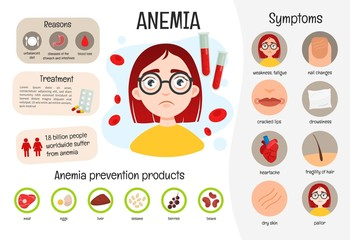HERE'S WHY & HOW TO PREVENT HEALTH ISSUES FROM TOO MUCH ZINC CONSUMPTION
The body's natural equilibrium can be upset and toxicity can result from consuming too much zinc, which can have negative health effects. The immune system, wound healing, healthy growth and development, and other biological processes all depend on zinc, an important element.
However, consuming too much zinc can have negative health consequences, such as exhaustion, headaches, nausea, diarrhoea, and stomach cramps. Adults should not consume more zinc than the recommended safe upper limit of 40 mg per day to avoid developing zinc poisoning. This can happen if you consume too much seafood, meat, or pork, or if you take supplements with high zinc levels. Additionally, continuous exposure to high levels of zinc. Additionally, consuming too much zinc can make it harder for the body to absorb and use other minerals, including copper, which can result in a deficit.
CLICK
TO SHOP>>>http://surl.li/hiqyq
This may result in neurological illnesses such as Parkinson's disease and Alzheimer's disease-like symptoms, neutropenia, anemia, and neutropenia. In addition, consuming large amounts of zinc over time may raise the risk of prostate cancer.
A high zinc consumption
during pregnancy can affect fetal development and cause genetic problems.
Developmental and cognitive delays and impairments may also affect children
whose moms have high zinc levels. In addition, excessive zinc
intake may reduce insulin sensitivity, resulting in insulin resistance and a
higher risk of developing diabetes. By adopting the right actions, you may
prevent consuming too much zinc. Continue reading for advice on how to avoid
and cure zinc poisoning.
CLICK TO SHOP>>>http://surl.li/hiqxr
Guidelines for preventing and treating zinc overconsumption:
1. TRACK LEVELS
To keep track of the body's zinc levels, it's crucial to visit a doctor frequently. This is crucial for those who consume a lot of zinc in their diet or who take zinc supplements.
2. REDUCE INTAKE
Adults should consume 8 to 11 mg of zinc per day, and up to 25 mg is considered safe. Limiting intake and avoiding excessive doses are necessary since too much zinc can be hazardous.
3. PREVENT USING ZINC
SUPPLEMENTS
Only use zinc supplements
under the direct supervision of a medical practitioner. High zinc dosages seen
in over-the-counter supplements and multivitamins have been linked to toxicity.
CLICK TO SHOP>>>http://surl.li/hiqyh
4. CONSUME A HEALTHY DIET.
Zinc may be obtained at sufficient levels through a balanced diet without the need for supplements. Meat, shellfish, legumes, seeds, and nuts are foods high in zinc.
5. RECOGNISE FOODS
THAT CONTAIN ZINC.
Some foods, including bread and cereals, have zinc added to them. While this may help those who have trouble getting the daily recommended amount of zinc, consuming too much of these foods can be hazardous.
6. SPEAK WITH A DOCTOR
If you have zinc poisoning
symptoms, visit a doctor right away. Nausea, vomiting, diarrhoea, cramping in
the stomach, headaches, and exhaustion are possible symptoms.
CLICK TO SHOP>>>http://surl.li/hiqxr
7. ADDRESS ROOT
ISSUES
Wilson's illness, among
other medical diseases, can include zinc toxicity as a side consequence. To stop future damage, it is crucial to address these underlying
disorders.
Despite being a necessary
vitamin with many health advantages, zinc can have negative consequences if
consumed in excess. Before taking any supplements or making any dietary
changes, it is imperative to speak with a healthcare professional or
nutritionist. When it comes to zinc consumption, moderation is critical, and
avoiding excessive quantities is essential for maintaining good health.
Zinc consumption in excess
can have several harmful consequences on the body. While exceeding the
daily recommended consumption of zinc can have the following negative effects,
it is an important element needed for many body processes.
CLICK TO SHOP>>>http://surl.li/hiqyh
High zinc levels might
result in gastrointestinal issues such as nausea, vomiting, diarrhoea, and
abdominal cramps. When zinc supplements are taken on an empty stomach, these
signs and symptoms may be especially noticeable.
as Copper Deficiency: A high zinc intake may prevent the body from absorbing and using copper. Another necessary mineral that is critical to several physiological functions is copper. Anaemia, weakness, and neurological issues can result from copper insufficiency, which can be brought on by zinc excess.
Even though zinc
is well-known for enhancing the immune system, excessive consumption
may have the opposite effect. Overdosing on zinc can throw off the body's
mineral balance, weaken the immune system, and increase susceptibility to
illnesses and infections.
Zinc and iron fight for
absorption in the body, resulting in decreased iron absorption. Overconsumption
of zinc can prevent iron from being absorbed, resulting in an iron deficit and
symptoms including weariness, weakness, and reduced cognitive function.
Toxicity: Zinc toxicity, commonly referred to as zinc poisoning, can occur from prolonged and excessive use of the metal. Fever, coughing, stomach ache, fatigue, and possibly organ damage are possible symptoms. This is especially concerning when people use excessive amounts of zinc supplements without the appropriate medical supervision.
Zinc can interact with
several drugs, decreasing their effectiveness. effectiveness or
producing negative effects. Zinc, for instance, may hinder the absorption of
antibiotics, diuretics, and drugs used to treat osteoporosis, which may
undermine the therapeutic effects that were intended.
It's vital to remember that
the daily recommended dosage for adults is typically between 6 and 8 milligrams for women and 8 to 11 milligrams for men. Consult with a healthcare provider
who can offer individualized advice based on your unique needs if you have
specific health issues or are thinking about using zinc supplements.











Comments
Post a Comment